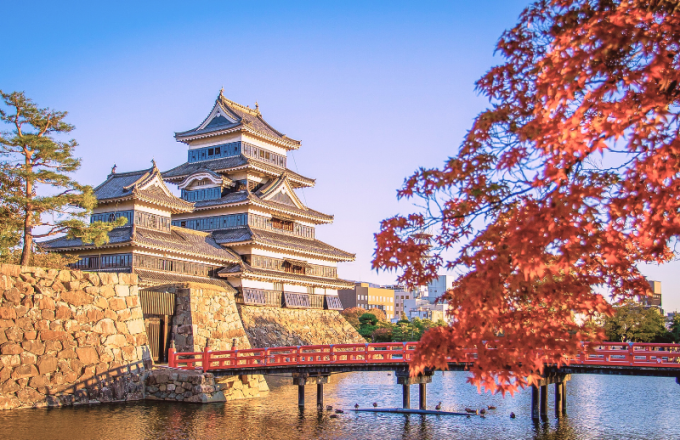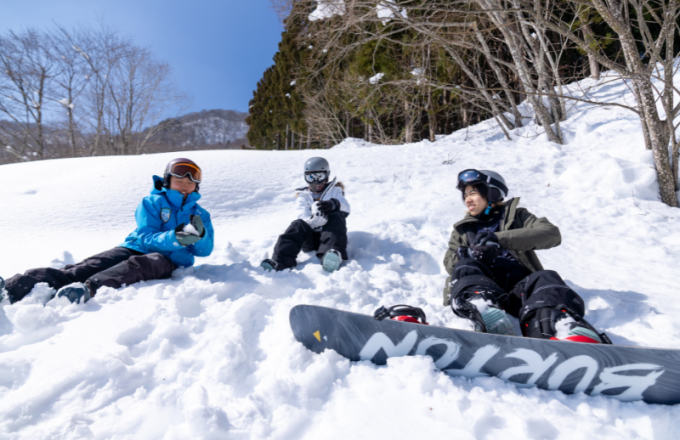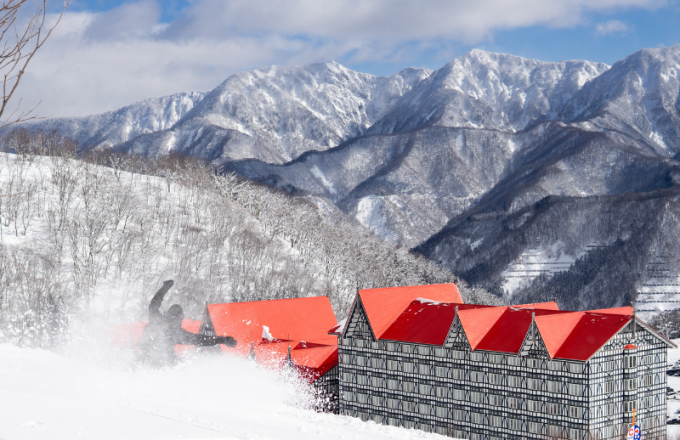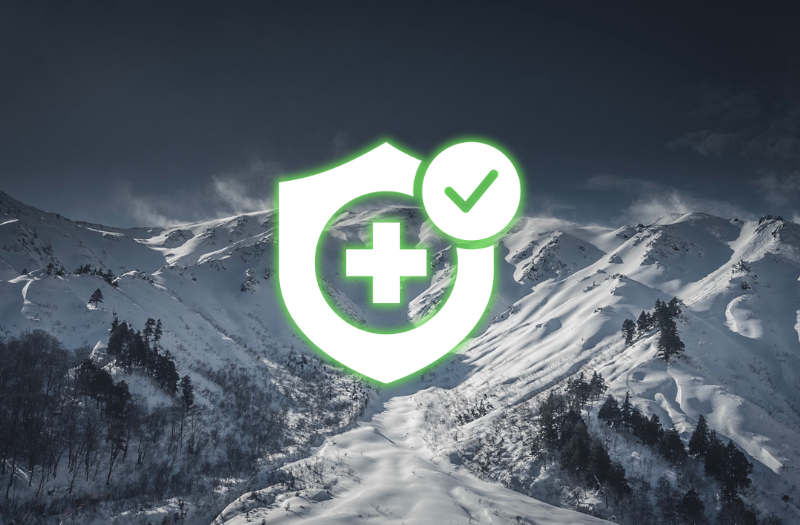Don’t let your dream vacation end in disaster.
Most vacations to Japan go off without a hitch. The Crime rate is low, the infrastructure is well-developed, and the Japanese medical system is advanced. However, it is best to hope for the best and plan for the worst.
Japan faces the constant risk of natural disasters; earthquakes, typhoons, and avalanches are not uncommon. And if you’re skiing or snowboarding, there are inherent risks with the sport itself.
Even the best-laid travel plans can run into unexpected challenges: a missed connection, a ski injury, or a sudden illness that turns a dream trip into a logistical nightmare.
That’s why Japan travel insurance should be part of your trip-planning conversation. It’s not just about ticking a box for peace of mind—it’s about protecting your investment, your family, and your ability to enjoy the trip you’ve carefully curated.
This guide explains exactly when and why travel insurance is necessary for Hakuba, what types of coverage apply to different kinds of travelers, and how to ensure your policy protects what matters most.
When traveling to Japan, it’s essential to understand whether your insurance policy covers natural disasters, as these events can disrupt even the most well-planned vacations.
Why Travel Insurance Matters in Hakuba
Hakuba is one of Japan’s premier alpine destinations, but that also means higher exposure to risk and higher upfront trip costs.
Medical treatment in Japan is world-class, yet it can be expensive for visitors. Luxury lodges and chalets often have strict cancellation policies. And ski-related injuries, especially in the backcountry, can lead to costly evacuation or search-and-rescue bills.
Here’s what travel insurance can do for you:
- Cover medical expenses, emergencies, and hospital stays.
- Reimburse you for trip cancellations or delays due to illness, weather, or family emergency, with cancellation cover included in most policies.
- Replace or compensate for lost luggage or ski gear.
- Provide access to 24/7 support in case of language barriers or health-related decisions.
Some benefits, such as baggage loss or trip delay, may be automatically covered under standard travel insurance policies, while others require add-ons.
If you’re investing in a high-end vacation, it only makes sense to protect it with equally premium insurance coverage.
Let’s explore the different types of travel insurance.
General Leisure (Non-Ski) Travel Insurance

Even if your plans don’t include skiing, travel insurance can be essential. Medical emergencies lost luggage, or a delayed flight can still derail your plans—and cost you. Typical travel insurance coverage for non-ski travelers includes emergency medical expenses, trip cancellation, lost or delayed baggage, and personal liability. It’s essential to review what your travel insurance coverage includes to ensure it matches your needs.
What to Look For:
- Emergency medical and hospital expenses
- Trip cancellation and interruption
- Lost, stolen, or delayed baggage
- Protection for lost or stolen travel documents such as passports and tickets
- Personal liability coverage
Who it’s for: Sightseers, food lovers, cultural travelers, and families not planning on skiing.
Where to Start Your Research
On-Piste Ski and Snow Sports Insurance

Skiing inside the resort might seem safe—but many standard travel insurance policies don’t include coverage unless you specifically add winter sports protection. Be sure to read the fine print of your policy to understand how the insurance provider defines off-piste vs. on-piste. Some policies can be stringent and will not insure you on ungroomed runs despite them being within the ski patrol boundary.
What to Look For
- Winter sports add-ons to standard policies
- Coverage for injuries, ambulance use, and mountain rescue inside resort boundaries
- Compensation for damaged, lost, or stolen ski equipment (owned or rented)
- Reimbursement for unused lift passes or lessons if you’re injured or sick
- Coverage for permanent disability resulting from ski accidents
- Multi-travelers or family plans if skiing with others
Who it’s for: Resort skiers, families with kids taking lessons, and luxury travelers enjoying in-resort skiing.
Where to Start Your Research
Backcountry and Off-Piste Ski Insurance
 Hakuba’s backcountry is world-renowned—but also one of the most common areas where insurance fails travelers. Standard ski policies rarely cover off-piste or guided terrain without specific add-ons. For your safety and to ensure a prompt emergency response, always register your backcountry skiing plans with local police before heading into remote or dangerous areas. Many insurance providers require skiers to be accompanied by a certified guide if venturing beyond the resort boundary.
Hakuba’s backcountry is world-renowned—but also one of the most common areas where insurance fails travelers. Standard ski policies rarely cover off-piste or guided terrain without specific add-ons. For your safety and to ensure a prompt emergency response, always register your backcountry skiing plans with local police before heading into remote or dangerous areas. Many insurance providers require skiers to be accompanied by a certified guide if venturing beyond the resort boundary.
What to Look For
- The specific inclusion of backcountry, side country, or heli-access skiing
- Search-and-rescue (SAR) and helicopter evacuation coverage
- High-limit emergency medical evacuation and repatriation
- Policies that accept unguided travel or clearly outline guide requirements
- Coverage for high-value ski or avalanche safety gear
- Declaration of any pre-existing medical conditions to ensure coverage during backcountry activities
Who it’s for: Experienced skiers, guided ski tours, and anyone exploring terrain beyond the groomed trails.
Where to Start Your Research
Medical Care and Emergencies in Hakuba
Hakuba has several medical facilities designed to accommodate English-speaking guests, including the International Clinic. There are also several hospitals in the region.
Comprehensive travel insurance for Japan is essential to protect yourself from unexpected medical costs. The Australian Government strongly recommends that all travelers purchase travel insurance that covers overseas medical expenses, hospital bills, and emergency medical evacuation.
In the event of a medical emergency, you can rely on Hakuba’s medical facilities and responsive emergency services. However, to access cashless treatment or reimbursement, you’ll need to provide proof of insurance.
Choose an insurance provider that offers 24/7 emergency assistance, allowing you to receive help with hospital admissions, translation services, and coordination with local authorities as needed. Having the right travel insurance policy ensures that you’re not left facing large medical bills or complicated logistics during your trip to Japan.
Liability and Legal Issues for International Travelers
Traveling in Japan means adapting to a different legal environment, and even the most careful traveler can encounter unforeseen events that lead to legal complications. Travel insurance in Japan can provide valuable legal liability coverage, helping to cover legal fees and expenses in the event of an accident or dispute.
However, it’s crucial to understand that travel insurance policies often include exclusions and sub-limits for legal liability. Always read the product disclosure statement carefully to know precisely what is and isn’t covered. If you find yourself facing a legal issue, seek advice from a qualified legal professional and contact your embassy to ensure your rights are protected.
By selecting a policy that offers coverage for legal liability and understanding its terms, you can travel with greater confidence, knowing you’re prepared for any unexpected legal challenges.
Cancellation and Curtailment: Protecting Your Investment
Luxury travel often involves significant upfront costs, from exclusive accommodations to premium experiences. That’s why comprehensive travel insurance with cancellation and curtailment coverage is a must for your Japan trip.
This type of cover protects your investment if unforeseen circumstances—such as natural disasters or personal emergencies—force you to cancel or cut your journey short.
By securing comprehensive cover, you can book your trip with peace of mind, knowing you’re protected against the unexpected.
Insurance Costs and Budgeting for Luxury Travelers
When planning a luxury escape to Hakuba, it’s wise to include the cost of comprehensive travel insurance in your overall budget. The price of travel insurance for Japan varies depending on the level of coverage, your age and health, the duration of your trip, and the activities you plan to engage in—such as snow sports or using specialized climbing equipment.
Budget for travel insurance from the start, you can focus on enjoying your luxury Japan adventure, knowing you’re protected against unforeseen events.
Do You Need Travel Insurance for Japan and Hakuba?
Yes—especially if your plans include skiing.
Here’s a quick guide:
- If you’re sightseeing and staying in hotels, You’ll need general travel insurance.
- If you’re skiing on groomed trails, Add a winter sports rider.
- If you’re heading into the backcountry, Get specialist coverage that includes SAR and off-piste protections.
Frequent travelers may benefit from annual travel insurance policies that cover multiple trips to Japan, offering both convenience and cost savings.
The key is to match your coverage to your actual activities—not just pick the cheapest or most well-known brand. Keep in mind that travelers may be required to pay upfront for medical treatment in Japan, even if you have insurance.
Travel Insurance Tips: Covering Medical Expenses
- Don’t assume winter sports are included—add them explicitly
- Check whether backcountry skiing is excluded without a guide
- Make sure your plan includes multilingual and cashless hospital support
- Review exclusions for altitude, avalanche areas, and gear
Booking and Setup Advice
- Buy insurance as soon as you’ve booked your trip to ensure cancellation benefits
- Keep digital and print copies of your policy with emergency contact numbers
- If skiing backcountry, save your guide details and itinerary for claims
- Download your provider’s app or portal login for easy access during your trip
- Check if your policy includes protection against credit card fraud in case your cards are lost or stolen during the trip
Disclaimer: Insurance policies and legal requirements are subject to change. This guide is informational only. Always review full policy documents and consult providers to confirm your coverage.

